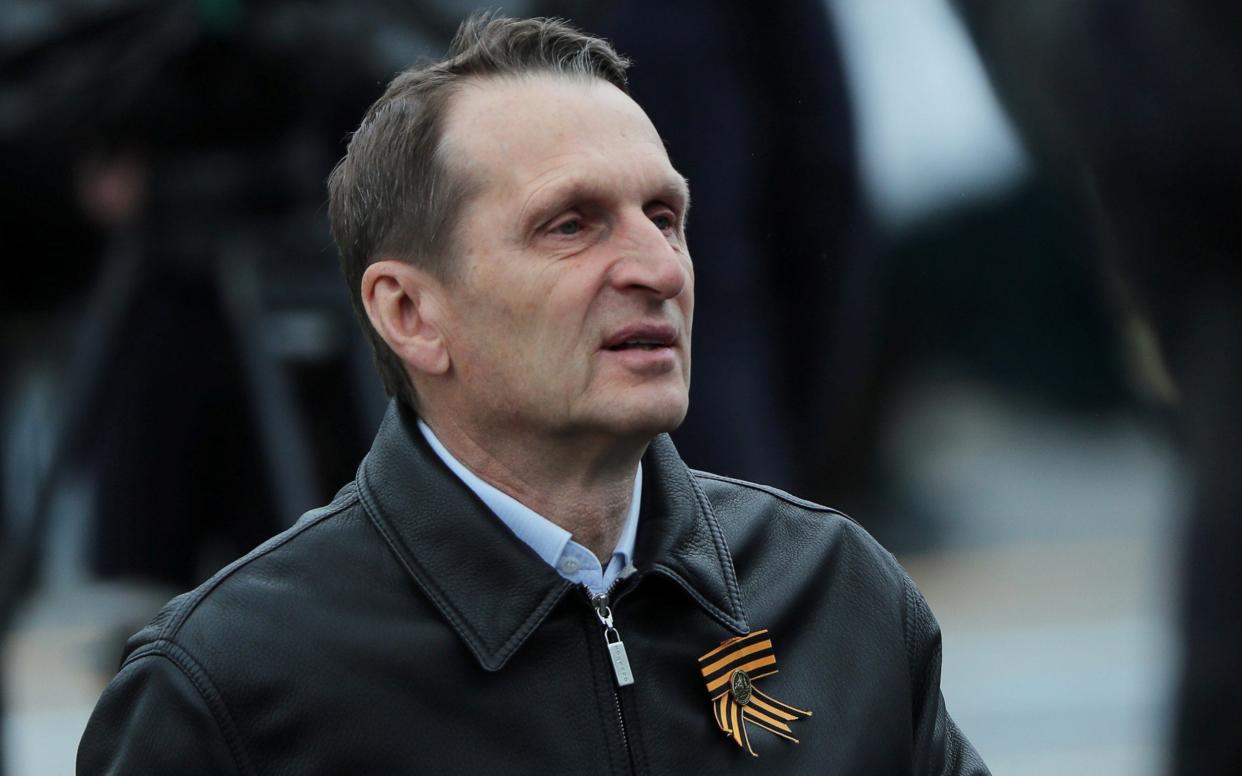‘Like a bad detective novel’: Russian spy chief denies launching SolarWinds hack

- Oops!Something went wrong.Please try again later.
- Oops!Something went wrong.Please try again later.
- Oops!Something went wrong.Please try again later.
The head of Russia’s Foreign Intelligence Service has denied carrying out a cyber attack on software business SolarWinds which gave hackers access to large portions of the US government as well as hundreds of businesses.
Sergei Naryshkin, the director of Russia’s SVR spy agency, said he was “flattered” by US and UK accusations that his organisation directed the hack but denied responsibility for it.
"These claims are like a bad detective novel," he said. The close ally of Vladimir Putin told the BBC that he could not “claim the creative achievements of others as his own”.
The US and UK governments publicly accused the SVR of carrying out the incident via a hacking group known as Cozy Bear, which has previously been linked to the Russian government.
They alleged that the group hacked SolarWinds in 2019 and then used the company’s IT monitoring software to gain access to US government departments including the Department of Defense, the Department of Homeland Security and the Department of Justice.
The attack was discovered in December and experts said there was evidence that the hackers had been using the breach to intercept emails and files for up to nine months.
Businesses including cyber security company FireEye and Microsoft were also targeted as part of the hacking campaign. Almost 18,000 SolarWinds customers installed the compromised software, the company has said.
Mr Naryshkin suggested that the hack may have been the work of Western intelligence services.
He quoted from documents leaked by Edward Snowden, a former contractor for the US National Security Agency, which explained that Western spy agencies have attempted to carry out their own cyber espionage campaigns.
“I don’t want to assert that this cyber-attack was carried out by a US agency, but the tactics are similar,” he said.
Ciaran Martin, the former head of GCHQ’s National Cyber Security Centre, told Radio 4's Today that Mr Naryshkin’s suggestion was “unconvincing.”
“There is compelling evidence pointing to Russia,” he said. “The targets they carefully selected and exploited … were mostly high value, high prestige, strategically important American targets.”
“So if it was America doing it to itself, why? And why were there so many willing participants in such a pointless act of deception? It doesn't make any sense,” he added.
Mr Naryshkin also refused to deny a suggestion made earlier this year by former MI6 head Sir John Sawers that only around 10pc of Russian spy operations in Europe have been uncovered.
“Any state which is truly strong and sovereign must have a strong intelligence service,” Mr Naryshkin said.
He also told the BBC that he had “started corresponding” with his counterparts at MI6. The two organisations had sent “respectful and polite” messages to each other, he said.

